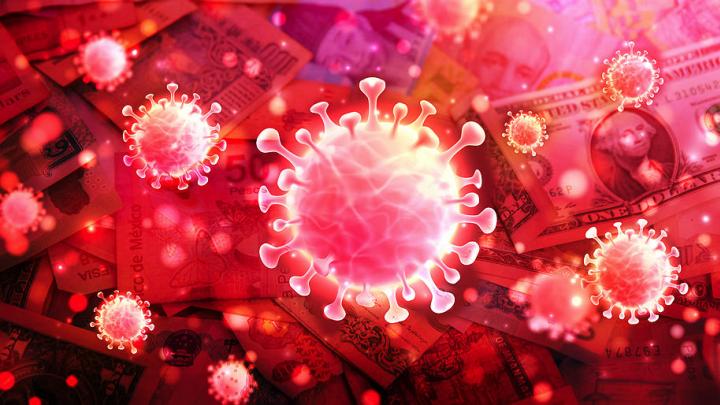The final tally of economic damage caused by SARS-CoV-2 will have to wait for the pandemic’s end, but in the meantime, two eminent economists have estimated the cost in the United States alone at $16 trillion. Eckstein professor of applied economics David Cutler, an expert on health care, and Eliot University Professor and president emeritus Lawrence H. Summers, former U.S. Secretary of the Treasury, lay out the grim prognosis in a Journal of the American Medical Association article: “The SARS-CoV-2 (severe acute respiratory syndrome coronavirus 2) pandemic,” they write in a Viewpoint, “is the greatest threat to prosperity and well-being the U.S. has encountered since the Great Depression.”
The costs through the fall of 2021, assuming the pandemic is largely controlled by then, break down as follows:
- $7.6 trillion in lost economic output, according to estimates by the Congressional Budget Office;
- $4.4 trillion in losses due to premature deaths (assuming a relatively conservative statistical value of $7 million is placed on each life lost, and that current trajectories continue, which would lead to 625,000 cumulative deaths associated with the pandemic through next year in the United States);
- $2.6 trillion in health-care costs associated with long-term complications among survivors;
- $1.6 trillion in increased mental-health costs attributable to the pandemic if the mental-health effects last just a year.
Cutler and Summers point out that their total, $16.2 trillion, is approximately 90 percent of the annual GDP of the United States, and far exceeds the costs associated with conventional recessions in this country. The lost output in the Great Recession that began in 2007-2008, for example, was only one-quarter as large, and the total estimated economic loss is “more than twice the total monetary outlay for all the wars the U.S. has fought since September 11, 2001, including those in Afghanistan, Iraq, and Syria,” the authors write. “By another metric, this cost is approximately the estimate of damages (such as from decreased agricultural productivity and more frequent severe weather events) from 50 years of climate change.”
Given these large costs, say Cutler and Summers, robust federal investment in policies to support increased population-wide testing, contact tracing, and isolation of infected individuals—“policies that can materially reduce the spread of SARS-CoV-2”—have enormous social value. Using an example in which 100,000 people are tested and the contacts of those infected are traced, the pair estimate a 30-fold return on investment, as $6 million in spending averts estimated costs of $176 million.
As Congress weighs legislation to mitigate the economic damage caused by COVID-19 cases, the authors urge that at least 5 percent of any relief package should be devoted to “the highest-return investments,” such as increased testing and contact tracing.
Looking to the future, they write, “[T]he immense financial loss from COVID-19 suggests a fundamental rethinking of government’s role in pandemic preparation. Currently, the U.S. prioritizes spending on acute treatment, with far less spending on public health services and infrastructure. As the nation struggles to recover from COVID-19, investments that are made in testing, contact tracing, and isolation should be established permanently and not dismantled when the concerns about COVID-19 begin to recede.”








